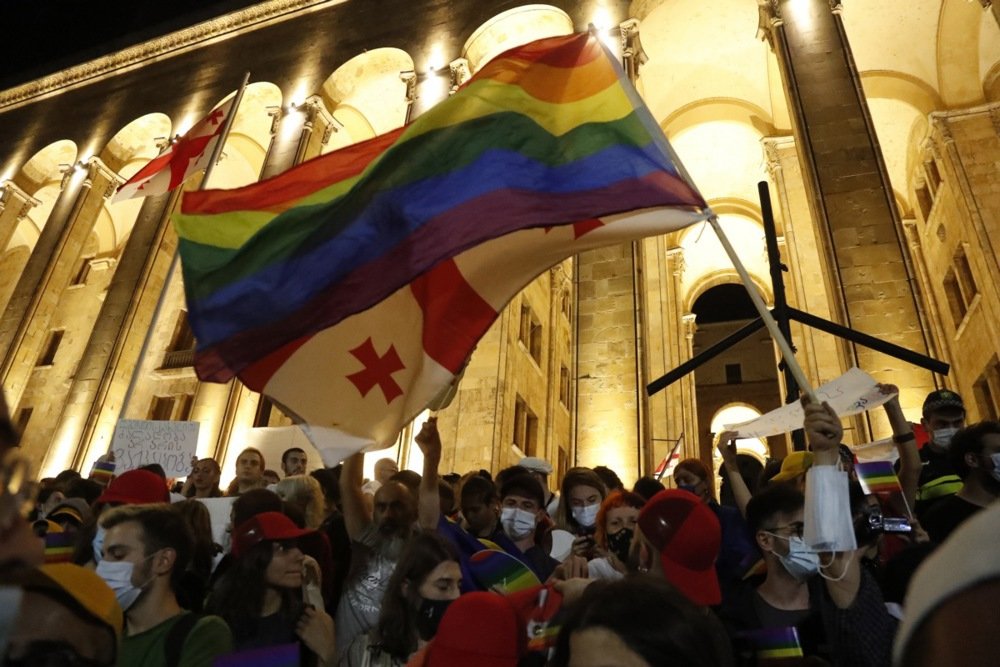
A rally in support of the LGBT community in Tbilisi, July 2021. Photo: EPA-EFE/ZURAB KURTSIKIDZE
The ruling Georgian Dream party has introduced a package of 19 bills “on family values and protecting minors” into parliament, speaker Shalva Papuashvili said at a briefing on Tuesday.
The list of initiatives proposed by Georgian Dream includes bans on formalising any relationship other than the union of a man and a woman, adoption by same-sex couples, gender reassignment surgery, changing gender assigned at birth on official documents and a raft of proposals to tackle so-called “LGBT propaganda”.
The proposed laws are mirror images of anti-LGBT laws brought in by the Kremlin, which culminated in the Russian Supreme Court declaring the “international LGBT social movement” an “extremist organisation” in November. This suggests the founder and honorary chairman of Georgian Dream, Bidzina Ivanishvili, is increasingly shifting his political focus towards Moscow and away from Europe, despite research which suggests that over 90% of Georgians support EU membership.
Papuashvili said the new laws, if passed, would lead to amendments in the Civil Code, the Labour Code and education legislation. He said the bills would have their first reading during the current parliamentary session, which ends in July, while the second and third readings would be tabled for parliament’s autumn sitting. “That gives everyone who wants to be part of the debate the time to prepare,” Papuashvili said.
The news comes just a day after Papuashvili signed the country’s controversial Transparency of Foreign Influence bill into law. Georgians opposed to it have taken to calling it the “Russian law” as it mirrors a notorious piece of legislation from 2012 that has since been used by the Kremlin as a tool to weaken civil society and silence independent media. An estimated 100,000 protesters came out onto the streets of the capital Tbilisi to protest the legislation.
